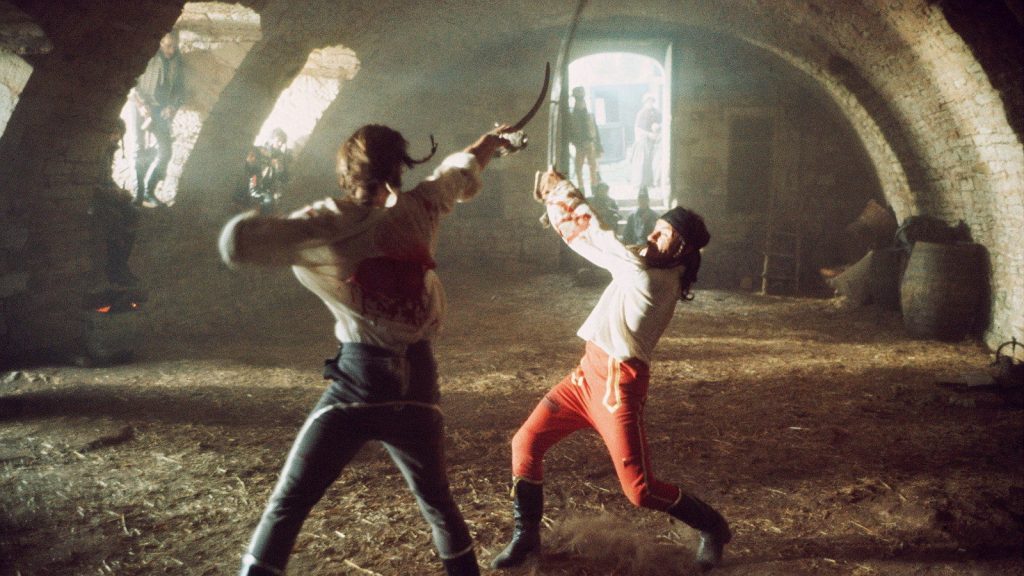The Duel
I re-watched Sam Peckinpah’s The Wild Bunch recently. Like all ‘great’ works of art, you see different things every time you look at it, and it gives the appearance of changing as you do. In part, the film is concerned with ageing.
It’s also a film about men who had been formed in the cauldron of a hard, unforgiving land and had nothing other than cunning, toughness and a propensity towards violence to ensure their survival.
However, balanced against physical survival is the necessity for psychological and emotional survival. A moral code, however basic, is essential, and the struggle to reconcile these things forms the tension of the story.
Ultimately, the Bunch spend their lives trying to buy back the honour they traded for gold. At the film’s climax, they stage a massacre to affect that transaction.
The Wild Bunch is often discussed as an action film. However, I’ve always responded to it in the terms Peckinpah wrote it – as a tragedy. The story is a profoundly disturbing ordeal that both celebrates and condemns both its characters and their world, leaving you with very little other than catharsis.
If all of this was just a story, I could let it go. But there’s something deep inside me, that sense of masculinity connected to a sense of honour, that just won’t come undone. Then again, perhaps the deep impulse is the desire for catharsis.
A man has to be able to fight. Violence, structured violence, is the bedrock of truth beneath all human relationships. As Jonathan Hobbes said, before the social contract, life was ‘solitary, poor, nasty, brutish and short.’ We surrendered our right to act violently to a sovereign power in order to secure our safety.
The problem is that safety just isn’t enough.
Transgender man Patricio Manuel has just advanced his professional boxing career to three wins and zero losses, eleven years after competing in the Olympic trials as a woman. As Harari has observed, technology will allow man to ascend to the status of God, even being able to alter something as previously definitive as sex.
If we live in a world where sex is no longer a God-given fact of being, there are all kinds of changes sweeping in that will not be relevant to me.
I don’t feel threatened by any of this at all. I’ve heard it said in a number of places that after the rise of feminism and the loss of manual labour, men are lost in the modern world.
This may be true for others, but these things have never bothered me in the slightest; as far as I’m concerned, those people might as well be discussing the weather in Japan.
I know what a man is, particularly in this instance. Harari says that technology has rendered masculinity as subjective a story as any of our previous constructs. A man is in danger of losing his status as a man at any moment, and his identity as a man is constantly under threat.
I agree with the second part.
When you consider Harari’s interest in meditation, this idea of creating a story based on one’s perspective and values is interesting. Meditation is the act of becoming removed from one’s thinking, observing thoughts without investing in them so that they will pass like clouds. Nothing actually means anything; it just is.
Marcus Aurelius famously wrote: ‘If you are distressed by anything external, the pain is not due to the thing itself, but to your estimate of it; and this you have the power to revoke at any moment.’
It’s a sobering thought that Krishnamurti, Marcus Aurelius and Harari would all consider me to be an idiot.


Leave a comment